- Home
- Peter Straub
In the Night Room Page 6
In the Night Room Read online
Page 6
“Good morning, Willy. I didn’t realize you’d gone out. Didn’t get you into any difficulty, I hope, did I?”
“I went out for groceries, Giles, I didn’t run off with anybody.”
“Of course, of course, it’s just . . . well, you know. If Mitchell thinks somebody’s going to be there, he can get a little heated when they’re not.”
“Then you’ll be happy to hear that Mitchell seemed perfectly rational.”
“Yes. In the future, we might do ourselves a favor by keeping in better communication about your comings and goings. Is that something you’d be willing to think about?”
“I’m willing to think about anything, Giles, but I’m not sure I want to feel obliged to tell you every time I go to Pathmark or Foodtown.”
Giles held up his hands in mock surrender. “Willy, please. I don’t want you to feel obliged to do anything. I just want things to go as smoothly as possible. That’s my job.” He nodded his head, letting her see that his job was a serious matter. “Anything else you’d like from me?”
“Do you know where Mitchell is right now?”
Coverley tilted forward and looked at her over the top of an imaginary pair of glasses. “Right now? As in, this moment?”
Willy nodded.
Giles continued to stare at her, without blinking, over the tops of his imaginary glasses. A couple of seconds went by.
“From the information I have, Mitchell is in France today. And is expected to stay there for perhaps three more days. To be more specific, he’s in a suburb of Paris called Nanterre.”
“He told my voice mail he was in Nanterre.”
“I thought he might have done, you see. That is why your question rather took me by surprise.”
The reason your question sounded so stupid was what she thought he meant.
“He said he was staying at the Hôtel Mercure Paris something-or-other Parc.”
“Mercure Paris La Défense Parc.”
“That’s it, yes. I called them as soon as I listened to his message, and the man I talked to said Mitchell checked out almost seven hours earlier. That’s like five in the morning here.”
“Well, then, he checked out without telling me. He’ll be in touch later today or tomorrow, I’m sure.”
“But he told me he was still checked into that hotel.” For a moment, their eyes met again. Coverley did not blink. “You can see why I would be a little concerned.”
Coverley pressed the fingers of one hand to his lips and, without any change of expression, lifted his head and gazed at the ceiling. Then he looked back down at Willy. “Let us clarify this situation. I’ll get the hotel’s telephone number.”
“I already talked to them,” Willy said.
“It never hurts to get a second opinion.”
For a little while Coverley moved his mouse around and watched what was happening on his screen. “All right,” he said at last, and punched in numbers on his keypad. Then he held up an index finger, telling her to wait. The finger came down. “Bonjour,” he said. Then came a long sentence she did not understand that ended with the word Fay-bear.
Pause.
“Oui,” he said.
Pause.
“Je comprends.”
Pause.
“Très bien, monsieur.” Then, in English: “Would you please repeat that in English, sir? Mr. Fay-bear’s wife asked me to inquire about his status at the hotel.”
He clicked a button or flipped a switch, Willy could not tell which.
Through the speakers on either side of the monitor came a heavily accented male voice saying, “Mrs. Fay-bear, can you hear me?”
“Yes,” Willy said. “Are you the man I spoke to earlier?”
“Madame, I have never spoken to you before we do it now. You were inquiring about your husband’s residence in our hotel?”
“Yes,” Willy said.
“Mr. Fay-bear is still registered as a guest. He arrived three days ago and is expected to remain with us yet two days.”
“Somebody else just told me he checked out at ten this morning.”
“But you see, he is very much still here. His room is 437, if you would care to speak to him. No—excuse me, he is not in his room at this time.”
“He’s there.”
“No, madame, as I explained—”
“He’s staying in your hotel, I mean.”
“As I have said, madame.”
“Is he . . .” Willy could not finish this sentence in the presence of Giles Coverley. “Thank you.”
“À bientôt.”
Coverley raised his hands and shrugged. “All right?”
“I don’t know what happened.”
“You got through to some other hotel with a similar name, Willy. It’s the only explanation.”
“I should have asked to leave a message.”
“Would you like me to call him back? It would be no trouble at all.”
“No, Giles, thanks,” she said. “I guess I’ll wait for him to call me back. Or I’ll try again tomorrow.”
“You do that,” Coverley said.
That night, again in the grip of her compulsion, Willy drove back to Union Street. All the way she asked herself why she was doing it and told herself to turn back. But she knew why she was doing it, and she could not turn back. Already she could hear her daughter’s cries.
Her headlights picked out the entrance to the parking lot and the huge dark ascent of the warehouse’s facade, and without intending to do so, she swerved into the lot. Her heart fluttered, birdlike, behind the wall of her chest.
She had known what she was going to do ever since she had realized that she really was backing her little car out onto Guilderland Road. She was going to break into the warehouse.
Holly’s high, clear, penetrating voice pealed out from behind the massive brick wall. Sweating with impatience, Willy drove around to the back of the building. Her headlights stretched out across the asphalt. A voice in her head said, This is a mistake.
“I still have to do it,” she said.
A high-pitched wail of despair like that of a princess imprisoned in a tower sailed out from the wall and passed directly through Willy’s body, leaving behind a ghostly electrical tremble. In her haste, Willy struggled with the handle until muscle memory came to her aid. Her body seemed to flow out of the car by itself, and she took her first steps toward the loading dock in the haze of light that spilled through the open door. Her headlights cast a theatrical brightness over the loading bay.
There it was again: Holly’s song of despair, the wail of a child lost and without hope. Willy’s feet stuck to the asphalt; her legs could no longer move.
The long platform emerged from a wide, concrete-floored bay that opened up the back of the building like an arcade. At the rear of the bay, a series of doors and padlocked metal gates led into the building itself.
I can’t deal with the fact that she’s dead right now, Willy thought. First I have to get her out of this damned building.
Holly screamed again.
Willy opened her trunk, rooted around the concealed well, and discovered a crowbar Mitchell had forgotten to remove. She picked it up and went toward the stairs. Again she was halted in midstride, but by nothing more alarming than a meandering thought. With the memory of Mitchell borrowing her car had come the strange recognition that while she had imagined him bailing her out of jail, she had never considered his reaction to being presented with his fiancée’s living daughter. Holly and Mitchell seemed to inhabit separate universes—
For the first time in her life, Willy saw literal stars. She seemed on the verge of falling backward into a limitless darkness. What she was doing was crazy. Mitchell and Holly could not be thought of in the same room because they did live in different universes, those of the living and the dead. Even in his absence, the sheer irrefutability of Mitchell’s physical presence pushed Holly back into the past, the only country where she could still be alive.
Willy felt like a
death-row inmate given a last-minute reprieve. A cruel madness had left her, driven away by the appearance within its boundaries of Mitchell Faber.
She went back to the car, dropped the crowbar in the trunk, slammed the lid, and collapsed into the driver’s seat. During the last few minutes, she felt, her life had changed, and she had moved into clarity for the first time since her tragedy. And the agent of that change had not been herself, but Mitchell. His sleek, brooding image had led her out of the shadows. She felt a wave of love and longing for him. That there had been a mix-up at some hotel in a Parisian suburb meant nothing. A serious question remained, however: what had convinced her, against all she knew, that her daughter was crying out for her in the ugly old building? At some point in the future, that would have to be thought about, deeply considered, probably with professional help.
Light exploded from her rearview mirror, and there came the peremptory bip! of a siren announcing its presence. Startled, Willy looked over her shoulder and saw the headlights of a police car immediately behind her. Guilt washed through her body, and even after she realized that she had done nothing criminal, its residue affected her demeanor when the officer came up to her window.
“Identification?” He held the flashlight on her face.
She fished around for her wallet and produced her license.
“This is your name, Willy?”
“Yes, it is.”
“I see you live in Manhattan, Willy. What are you doing parked in a warehouse lot in New Jersey at this time of night?”
She tried to smile. “I moved here about two weeks ago, and I haven’t done anything about my license yet. Sorry.”
He ignored her apology. The flashlight shone directly onto her face. “How old are you, Willy?”
“Thirty-eight,” she said.
“You’ve gotta be kidding me.” The officer played the light on her driver’s license, checking the date of her birth. “Yep, born in 1965. You must have very few worries, Willy. What is your new address, please?”
She gave him the number on Guilderland Road.
The policeman lowered the flashlight, appearing to be occupied by his own thoughts. He was a decade younger than she. “That’s the big house with the gate. And all those trees.”
“You got it.”
He smiled at her. “Brighten up my evening and tell me why you’re sitting here in this parking lot.”
“I had something to think about,” she said. “I’m sorry, I know it must look suspicious.”
The officer looked away, still smiling, and rapped the flashlight against his thigh. “Willy, I recommend that you start up this gorgeous little vehicle and get yourself back to Guilderland Road.”
“Thank you,” she said.
He moved back, holding his eyes on her face. “Don’t thank me, Willy, thank Mr. Faber.”
“What? Do you know Mitchell?”
The young officer turned away. “Have a nice night, Willy.”
13
For Tim Underhill that night, periods of unhappy wakefulness alternated with alarming dreams in which everything around him, including the ground he stood on, proved, when scrutinized, to be a collection of CGI effects. He fled across fields, he wandered through vast empty buildings, he walked slowly through a haunted city, but all of it was as unreal as a mirage. The cobbles and mosaics beneath his feet, the long slope of the hill, the sconces and the walls on which they hung were shiny, cartoonlike computer effects.
He got out of bed feeling worse than when he had climbed in. A shower, usually an infallible cure for the disorders that afflicted him on arising, left him feeling only partially restored. Groaning, he toweled himself dry, pulled clothes out of various drawers, and sat on the edge of his bed. At that entirely ordinary moment, his memory finally delivered to him the events of the previous morning.
He was holding open a sock with both hands. The sock made no sense at all. It was only a tube of cloth. The angel’s foot had come down on the sidewalk, and that foot had been astonishingly beautiful. And he had seen that smooth passage of white flesh at the groin, the giant wings creaking open, the bright and powerful ascent. Sudden, stinging tears leaped to the surface of Underhill’s eyes. When he had tugged the sock onto his foot, he ran to the windows on Grand Street and looked down. Between rain showers on a dark gray morning, people holding folded or upright umbrellas hurried this way and that on the pavement. He saw no lurking angel, no feral Jasper Kohle. A glimpse of yellow in the refuse bin on the corner reminded him of Kohle’s discarded books.
I couldn’t have seen all that, he told himself. He knew what had happened: Jasper Kohle had affected him more than he had known. Soaked through, anxious, angrier than he had wanted to be, Tim had let his mind pull him into the surreal. No wonder he had dreamed of wandering lost through slippery landscapes made entirely of illusion. Tim wanted to think that yesterday’s vision of an angel was the product of an overdeveloped imagination.
He decided to eat breakfast at home for once, and to avoid looking out the window.
But when he sat down before his computer, he immediately found himself in trouble. On the preceding day, he had needed the amnesia produced by concentrated absorption in his story and covered page after page with his heroine’s difficulties. Now his language had turned leaden and clumsy, and her problems seemed contrived.
Abandoning the struggle, he brought up his e-mail. By now, this was a dubious act, akin to talking to shiny-eyed fans who metamorphosed into aging, unclean madmen. As he’d feared, a number of letters without return addresses had appeared in his electronic mailbox. Tim deleted the spam, read his real e-mail, answered what had to be answered, and only then retrieved the messages from Nowhere.
Byrne615 wished to communicate the following:
not rite, not fair, you pansy
i dont know where i AM
Sorry, but I know less than you do, Tim thought. (But something about Byrne615 snagged in his mind.)
Cyrax told him:
b patient. u will know all soon.
watch listn. i wl b yr gide.
And kalicokitty weighed in with:
breth was taken frum my bodee
I see only veils of fog or smok
with sounds of greatr engines
som never liked u
I did
The last message, in some way the most disturbing, came from phoorow:
u aint soch
bastrd no
mor ha ha
“Phoorow”—how many Phoorows could there be? The only one Underhill had ever known had been a fellow grunt in Lieutenant Beevers’s band of merry men, his real name being Philip Footler, but known everywhere as Phoorow, a sweet-faced young redneck who had participated in Lieutenant Beevers’s second-greatest fuckup, a military exercise that took place in Dragon Valley, or down in Dragon Valley, as they used to say, them what was there. Phoorow had disliked Tim, but having seen what Tim did to a very few others who objected to his “flowers,” he kept his objections to himself. Maybe he had been a bastard, Tim allowed. For sure he had been a loudmouth show-off, and a country boy like Phoorow would never have met anyone like him.
Unfortunately for him at the time, and unfortunately now for Tim Underhill, Phoorow had been cut in half, literally, by machine-gun fire during their platoon’s sixth or seventh hour under fire down in Dragon Valley.
Tim stood up, a number of internal organs trembling slightly, and walked from his desk to his fake fireplace with a gas fixture capable of making it look exactly like a real fireplace, should he ever turn it on, and thence to the handsome bookcases to its right. There he drew comfort from the rows of familiar titles and names. Martin Amis, Kingsley Amis. Raymond Chandler, Stephen King. Hermann Broch, Muriel Spark, Robert Musil. A couple of yards of the black Library of America volumes. Then more fiction, imperfectly alphabetized: Crowley, Connelly, Lehane, Lethem, Erickson, Oates, Iris Murdoch. Iris was dead; so were Kingley Amis, Chandler, and Hermann Broch. Dawn Powell, you’re gone, too. Are y
ou folks going to start getting in touch? Where Phoorow rushes in, will you fear to tread?
He moved to the window and gazed, unseeing, down. How could the Phoorow of today be the barely remembered Phoorow of 1968? He couldn’t.
In the hitherto semipeaceable kingdom of Timothy Underhill, things appeared to be falling apart. Yesterday he had hallucinated seeing his sister and a gigantic, pissed-off angel; yesterday he had been rattled by a crazed stalker posing as a fan; today a dead man had sent him an e-mail. Down on the street, cars and trucks crawled eastward through rain as vertical as a plumb line.
There could actually be another person called Phoorow, he supposed. According to the person called Cyrax, Tim would know what was going on fairly soon. Cyrax, it could be, had orchestrated all these messages. Tim could not persuade himself that this Cyrax was capable of arranging everything that had happened in the Fireside and on the street, but undoubtedly a single, deeply misguided individual could send out tons of bizarre e-mails under a variety of names.
Tim had largely succeeded in calming himself down, and as he returned to his desk he remembered what had struck him about the first of today’s crop of mystery e-mails. The center on the Holy Sepulchre football team had been one Bill Byrne, a 250-pound sociopath who from time to time had referred to Tim Underhill in the terms of today’s e-mail. “Pansy,” “queer,” all of that. At seventeen, Underhill had not known himself well enough to be angry; instead, he had felt embarrassed, filled with an incoherent sense of shame. He had not wanted to be those things. Acceptance had come only after his first experience of sex, with, as it happened, the spookily sophisticated, Japanese-American seventeen-year-old Yukio Eto, who had become the template for the “flowers.” After Yukio, he had done his best to feel guilty and ashamed, but the effort had been doomed from the start. The experience had been so joyous that Tim was totally incapable of convincing himself of its wickedness.

 Poe's Children: The New Horror: An Anthology
Poe's Children: The New Horror: An Anthology Koko
Koko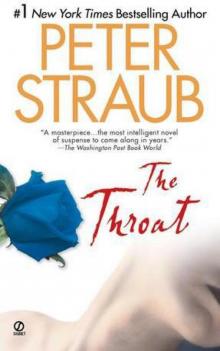 The Throat
The Throat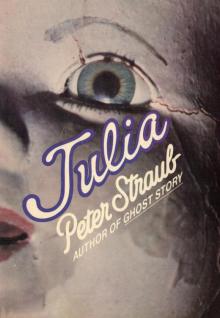 Julia
Julia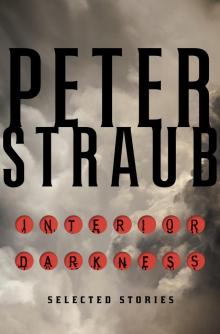 Interior Darkness: Selected Stories
Interior Darkness: Selected Stories A Dark Matter
A Dark Matter Floating Dragon
Floating Dragon Houses Without Doors
Houses Without Doors Mr. X
Mr. X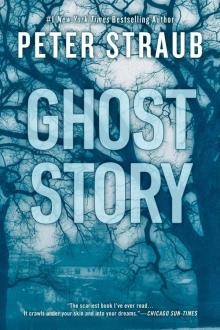 Ghost Story
Ghost Story Mystery
Mystery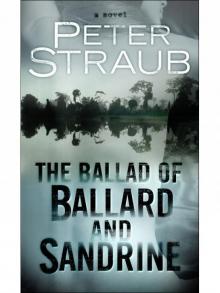 The Ballad of Ballard and Sandrine
The Ballad of Ballard and Sandrine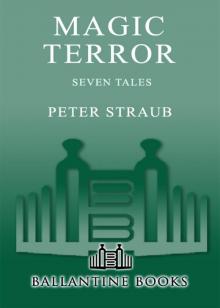 Magic Terror
Magic Terror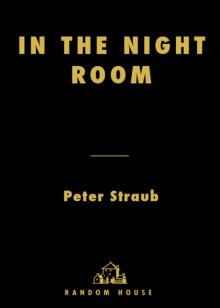 In the Night Room
In the Night Room Lost Boy Lost Girl
Lost Boy Lost Girl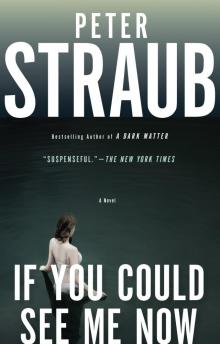 If You Could See Me Now
If You Could See Me Now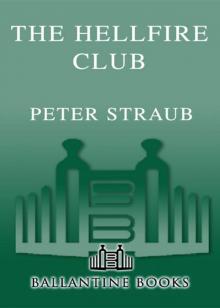 The Hellfire Club
The Hellfire Club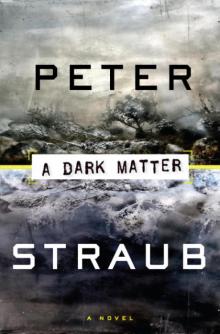 A Dark Matter: A Novel
A Dark Matter: A Novel Koko brt-1
Koko brt-1 Shadowland
Shadowland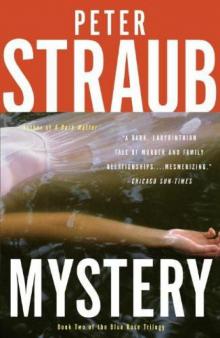 Mystery brt-2
Mystery brt-2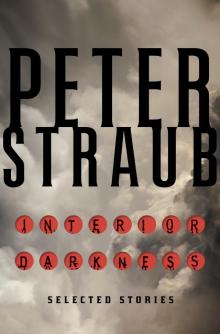 Interior Darkness
Interior Darkness Poe's Children
Poe's Children